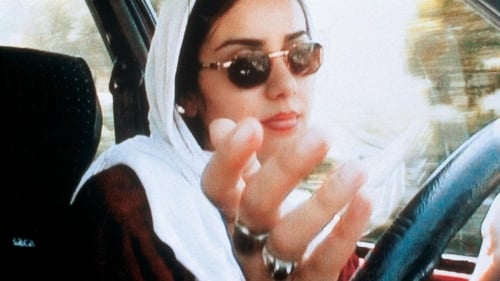
Director
Living in the confinement of a shared apartment with her controlling mother, Narges is soon confronted with the traumatic situation that women face under patriarchy. A sensitive, brave account about womanhood in modern-day Iran.

Director
An honest, fearless, and strong examination of the body and identity in relation to social taboos, violence, and power structure.

Director
A daughter pushes at the bounds of her relationship with her mother as she unpicks the psychological consequences of the violence she suffered.

Assistant Director
Mania Akbari’s From Tehran to London (2012), has a Russian-doll structure. It begins with Akbari shooting her latest film entitled Women Do Not Have Breasts about a couple, the young poet and writer Ava and her upper-class older husband Ashkan, who live in a large, beautiful – yet isolated – house in the hilly outskirts of the city. Household workers Maryam and Rahim attend to their needs. But despite their comfortable lives, Ava is increasingly dissatisfied and estranged in her relationship with Ashkan. What seems to have been an exciting relationship in the past is now little more than a series of mutual reproaches, as Ashkan incessantly tries to change Ava into someone she isn’t – a dutiful wife.

Executive In Charge Of Production
Mania Akbari’s From Tehran to London (2012), has a Russian-doll structure. It begins with Akbari shooting her latest film entitled Women Do Not Have Breasts about a couple, the young poet and writer Ava and her upper-class older husband Ashkan, who live in a large, beautiful – yet isolated – house in the hilly outskirts of the city. Household workers Maryam and Rahim attend to their needs. But despite their comfortable lives, Ava is increasingly dissatisfied and estranged in her relationship with Ashkan. What seems to have been an exciting relationship in the past is now little more than a series of mutual reproaches, as Ashkan incessantly tries to change Ava into someone she isn’t – a dutiful wife.

acteur
After casting painter and video artist Mania Akbari as the central figure of his groundbreaking Ten (2002), and then witnessing her outstanding debut as a feature film director in 20 Fingers (2004), Abbas Kiarostami urged her to direct a sequel to the film. In Dah be alaveh Chahar (10 + 4), though, circumstances are different: Mania is fighting cancer. She has undergone surgery; she has lost her hair following chemotherapy and no longer wears the compulsory headscarf; and sometimes she is too weak to drive. So the camera follows her to record conversations with friends and family in different spaces, from the gondola she had famously used in her first feature to a hospital bed.

Amin
Narra 10 breves historias, presentadas como una cuenta atrás de los encuentros de una mujer divorciada que se desplaza en coche por Teherán. En el año 2007 Mania Akbari, la actriz protagonista de esta película, dirigió una secuela. (FILMAFFINITY)

Director
I Look Like My Mother follows Amina Maher’s courageous journey to free herself from the constraints of norms, taboos and traditions. Her coming-out as a trans woman is her rebellious stand against rape culture and patriarchy, and her strong support for a future beyond cis-normativity. Ten by Kiarostami recorded ten-year-old Amina sitting in the passenger seat of her mother’s car without her consent. Now, she has taken the wheel, driving her actress mother, Mania Akbari, through Berlin – in a new body and with a new name, Amina. On her journey, Amina navigates through highs and lows with humour and energy, looking to transform the overshadowing past in playful dream sequences and in honest discussions with her queer community. With sheer endless creative energy, she transforms her present and past experiences into beautiful elegies of a struggle for her own truth – in her own terms. There is nothing to stop Amina from putting her foot down on the accelerator now.







